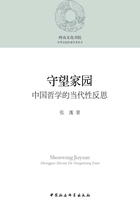He tells us that at a certain point of our history more than two hundred millions of dollars had been applied for to make improvements; and this he does to prove that the treasury would be overwhelmed by such a system. Why did he not tell us how much was granted? Would not that have been better evidence? Let us turn to it, and see what it proves. In the message the President tells us that "during the four succeeding years embraced by the administration of President Adams, the power not only to appropriate money, but to apply it, under the direction and authority of the General Government, as well to the construction of roads as to the improvement of harbors and rivers, was fully asserted and exercised." This, then, was the period of greatest enormity. These, if any, must have been the days of the two hundred millions. And how much do you suppose was really expended for improvements during that four years? Two hundred millions? One hundred? Fifty? Ten? Five? No, sir; less than two millions. As shown by authentic documents, the expenditures on improvements during 1825, 1826, 1827, and 1828 amounted to one million eight hundred and seventy-nine thousand six hundred and twenty-seven dollars and one cent. These four years were the period of Mr. Adams's administration, nearly and substantially.
This fact shows that when the power to make improvements "was fully asserted and exercised," the Congress did keep within reasonable limits; and what has been done, it seems to me, can be done again.
Now for the second portion of the message--namely, that the burdens of improvements would be general, while their benefits would be local and partial, involving an obnoxious inequality.
That there is some degree of truth in this position, I shall not deny. No commercial object of government patronage can be so exclusively general as to not be of some peculiar local advantage. The navy, as I understand it, was established, and is maintained at a great annual expense, partly to be ready for war when war shall come, and partly also, and perhaps chiefly, for the protection of our commerce on the high seas. This latter object is, for all I can see, in principle the same as internal improvements. The driving a pirate from the track of commerce on the broad ocean, and the removing of a snag from its more narrow path in the Mississippi River, cannot, I think, be distinguished in principle. Each is done to save life and property, and for nothing else.
The navy, then, is the most general in its benefits of all this class of objects; and yet even the navy is of some peculiar advantage to Charleston, Baltimore, Philadelphia, New York, and Boston, beyond what it is to the interior towns of Illinois. The next most general object I can think of would be improvements on the Mississippi River and its tributaries. They touch thirteen of our States-Pennsylvania, Virginia, Kentucky, Tennessee, Mississippi, Louisiana, Arkansas, Missouri, Illinois, Indiana, Ohio, Wisconsin, and Iowa. Now I suppose it will not be denied that these thirteen States are a little more interested in improvements on that great river than are the remaining seventeen. These instances of the navy and the Mississippi River show clearly that there is something of local advantage in the most general objects. But the converse is also true. Nothing is so local as to not be of some general benefit. Take, for instance, the Illinois and Michigan Canal. Considered apart from its effects, it is perfectly local. Every inch of it is within the State of Illinois. That canal was first opened for business last April. In a very few days we were all gratified to learn, among other things, that sugar had been carried from New Orleans through this canal to Buffalo in New York. This sugar took this route, doubtless, because it was cheaper than the old route.
Supposing benefit of the reduction in the cost of carriage to be shared between seller and the buyer, result is that the New Orleans merchant sold his sugar a little dearer, and the people of Buffalo sweetened their coffee a little cheaper, than before,--a benefit resulting from the canal, not to Illinois, where the canal is, but to Louisiana and New York, where it is not. In other transactions Illinois will, of course, have her share, and perhaps the larger share too, of the benefits of the canal; but this instance of the sugar clearly shows that the benefits of an improvement are by no means confined to the particular locality of the improvement itself. The just conclusion from all this is that if the nation refuse to make improvements of the more general kind because their benefits may be somewhat local, a State may for the same reason refuse to make an improvement of a local kind because its benefits may be somewhat general. A State may well say to the nation, "If you will do nothing for me, I will do nothing for you." Thus it is seen that if this argument of "inequality" is sufficient anywhere, it is sufficient everywhere, and puts an end to improvements altogether. I hope and believe that if both the nation and the States would, in good faith, in their respective spheres do what they could in the way of improvements, what of inequality might be produced in one place might be compensated in another, and the sum of the whole might not be very unequal.















